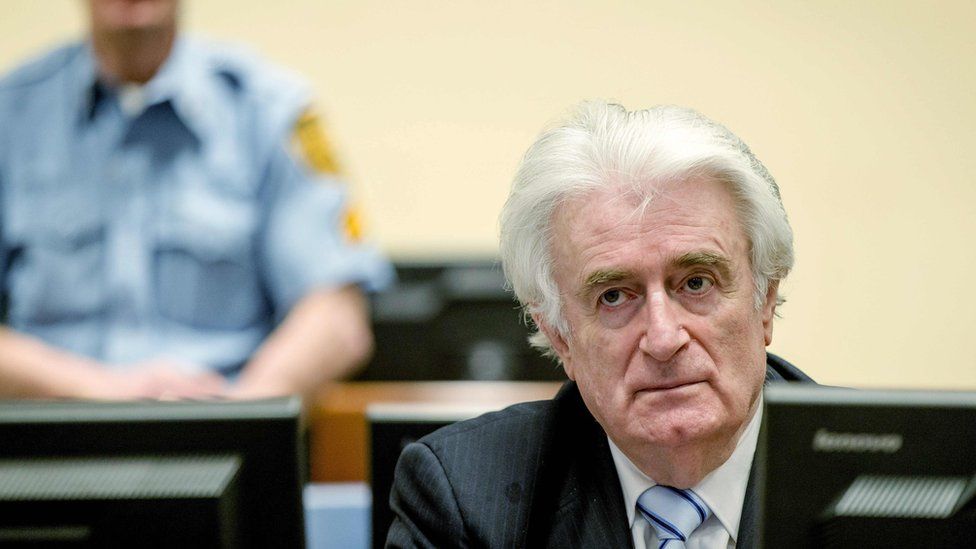Radovan Karadzic: Former Bosnian Serb leader faces final war crimes verdict
- Published

A UN court is to hand down its final ruling in the case of former Bosnian Serb leader Radovan Karadzic, who was convicted of genocide.
Karadzic, 73, was sentenced to 40 years in prison in 2016 by a UN tribunal in The Hague, but appealed his sentence.
At the launch of his appeal he said his conviction was based on "rumours".
Karadzic was found guilty on 10 counts of genocide, war crimes and other atrocities, including planning the Srebrenica massacre of July 1995.
Bosnian Serb soldiers slaughtered nearly 8,000 Muslim men and boys in a "safe area" in Srebrenica protected by Dutch peacekeeping forces for the UN.
The massacre was the worst atrocity in Europe since World War Two.
Correspondents say Wednesday's ruling is likely to be one of the last remaining hearings stemming from the bloody break-up of the former Yugoslavia in the 1990s.
Karadzic, a former psychiatrist, was president of the Bosnian Serb entity Republika Srpska during the Bosnian War in the 1990s.
In its original verdict, the UN tribunal ruled that Karadzic and other leaders were responsible for "organised and systematic pattern of crimes committed against Bosnian Muslims and Bosnian Croats".
Judges also held Karadzic responsible for the siege of Sarajevo, a campaign of shelling and sniping which lasted more than three years and led to the deaths of an estimated 10,000 civilians.
At the start of his appeal in April 2018, Karadzic's lawyer said the former leader wanted to overturn the conviction and was seeking a new trial.
Karadzic told judges that the expulsion of Muslims and Croats in the 1990s had been "myths".
After the war, Karadzic hid for years masquerading as an expert in alternative medicine before his eventual arrest in Serbia in 2008.
Former Bosnian Serb army commander Ratko Mladic was sentenced to life in prison on similar charges of war crimes and genocide in November 2017.
- Published24 March 2016
- Published24 March 2016
- Published18 March 2016
- Published4 April 2022